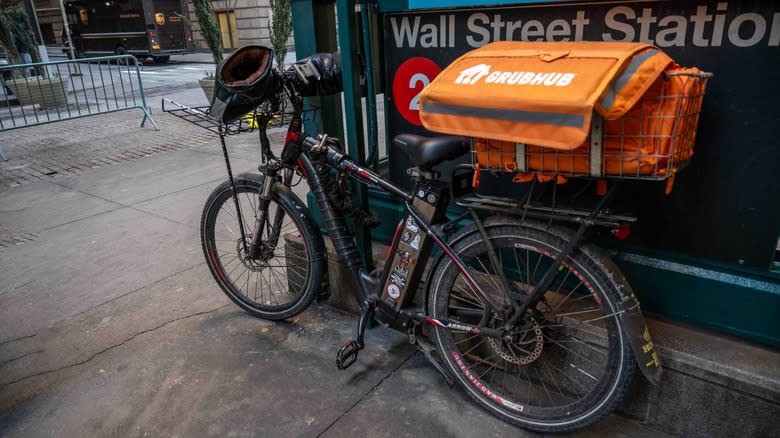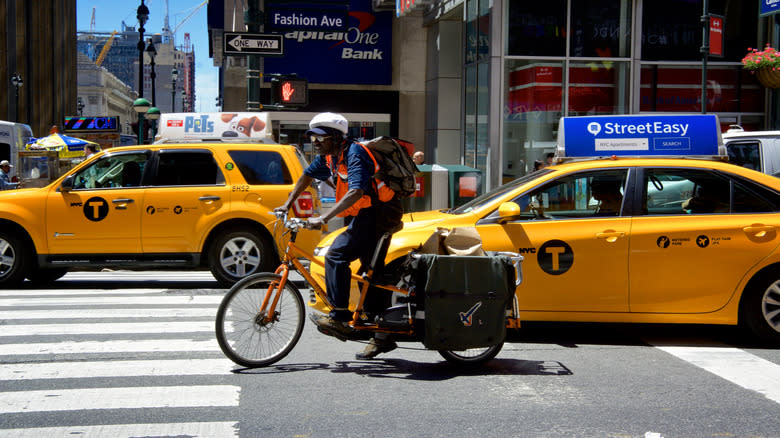Under A Proposed NYC Bill, Delivery App Commissions Could Reach 43%

Allow us to set the scene: You're in an unfamiliar city on a vacation or business trip. Or, maybe you're just chilling at a friend's house, and you both have the munchies. "What's around?" you ask before opening a food delivery app like DoorDash or Grubhub. Third-party delivery apps have major power to drum up business for restaurants by promoting them with higher priority listing. Customers are more likely to order from a joint that's more visible on the platform. Now, a new bill proposed in NYC could get restaurants to pay more for their spot.
Int 762 proposes that delivery services could collect up to 43% of the total order price if restaurants choose to partner with these apps, thereby expanding their marketing presence (15% for delivery, 25% for marketing and 3% for credit card processing). NYC enacted legislation capping delivery fees for third-party apps at 23% in 2020, when food delivery apps were more a necessity than a convenience. Now, as the world has opened back up again, the bill is actively under consideration by the New York City Council.
NYC has been the only city in the U.S. to enact unchanging legislation regarding the fees that delivery apps are allowed to charge restaurants. Although, it's worth noting that in the rest of the country, Grubhub, DoorDash, and Uber Eats currently cap this commission rate at 30%, well below the new proposed 43% in New York.
Read more: 19 Popular Pizza Chains, Ranked From Worst To Best
NYC Restaurants Could Have To Pay More For A Spot On The Food App Playing Field

It's worth noting that what restaurants pay may also depend on their arrangement. DoorDash currently offers a three-tiered model, collecting a higher percentage of order profits in exchange for greater exposure and promotion. According to DoorDash, commission fees cover advertising, driver pay and insurance, credit card processing fees, customer support help, and platform technology costs like coding. Uber Eats also offers three tiers: Lite (15% fee for delivery orders), Plus (25%), and Premium (30%).
The pro-app argument posits that Int 762 would equal the playing field, allowing smaller restaurants to opt into greater exposure alongside better-known dominant chains and catch customers' eyes first. But, the New York City Hospitality Alliance calls Int 762 exploitative, not helpful. Executive Director Andrew Rigie called it a "political sleight of hand [that] would let them bury restaurants in search results if they don't pay up, and make it harder for New Yorkers to find local restaurants that can't afford to, or don't want to pay to play," via Restaurant Business.
This isn't the first time app fees caused controversy. Earlier this year, Grubhub was sued by Los Angeles County for high "bait and switch" delivery fees described as deceptive marketing. In late 2023, NYC rallied for an $18 hourly minimum wage for app-based food delivery drivers. The ruling took effect in April 2024 following a flood of lawsuits from these apps against the city trying to halt the legislation.
Read the original article on Tasting Table.

 Yahoo News
Yahoo News 